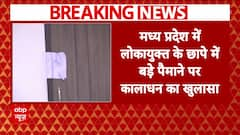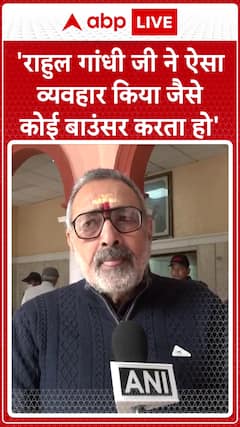Delhi Court Discharges AAP MLA Amanatullah Khan In South Delhi Demolition Drive Case
A Delhi court released Amanatullah Khan in a case of alleged rioting and stone pelting on police officials in May 2022 while opposing the South Delhi Municipal Corporation's demolition drive.

A Delhi court on Wednesday acquitted Aam Aadmi Party (AAP) leader Amanatullah Khan from a case of alleged rioting and stone pelting on police personnel in May 2022 while opposing the South Delhi Municipal Corporation's demolition drive.
Khan's appeal against a magisterial court's order was heard by Special Judge Vikas Dhull.
According to the news agency PTI, the metropolitan magisterial court had ordered Khan and others to face charges under sections 147 (rioting), 153 (provocation with intent to cause riot), 186 (obstructing a public servant in the discharge of his public functions), 353 (assault or criminal force to deter a public servant from performing his duty), and 332. (voluntarily causing hurt to deter a public servant).
The sessions court ruled on Wednesday that the magisterial court's order was "grave illegal" and not legally binding, as per the report.
The judge stated that the magisterial court relied heavily on witness statements, even if video recordings did not support the allegations made by the witnesses, to reach a prima facie conclusion that charges against the revisionist and other accused persons were warranted, the report said.
The judge also stated that there are two conceivable outcomes, one of which, based on the testimony of witnesses, raises only the suspicion that revisionists and other accused persons committed the alleged crime.
However, the judge concluded that the other viewpoint revealed by the video recording did not establish a serious suspicion that the revisionist and other accused persons committed the crime alleged by the witnesses in their respective statements. "It is a recognised principle of law that if two perspectives are possible and one view generates a suspicion only, then accused needs to be discharged. "In light of the foregoing arguments, the impugned order suffers from substantial illegality and is not legally sustainable," the judge ruled in dismissing Khan, PTI reported.
On January 20, the metropolitan magistrate decided that charges be filed against Khan and others.
According to police, Khan and his supporters formed an unlawful assembly and threw stones at Delhi police personnel, as well as destroying public property, while protesting the South Delhi Municipal Corporation's demolition effort in the Kalindi Kunj neighbourhood on May 12, 2022.
According to police, the reasonable force had to be used on the scene to control the crowd, and several officers were injured as a result of the stone pelting.
The unified Municipal Corporation of Delhi (MCD) was established on May 22, last year. It was reunified by the merger of three civic bodies: the North, South, and East municipal corporations, abbreviated as NDMC, SDMC, and EDMC.
Delhi Waqf Board Case: Court Grants Bail To AAP MLA And 10 Others In CBI Case
Amanatullah Khan of the Aam Aadmi Party and ten others were granted bail by a Delhi court on Wednesday in a case filed by the Central Bureau of Investigation (CBI) to investigate alleged fraudulent appointments in the Delhi Waqf Board. Khan also serves as Chairperson of the Waqf Board.
Special Judge MK Nagpal of Rouse Avenue Courts ruled that the accused persons should be granted bail pending trial and that there is no reason or ground to arrest any of them, Live Law reported.
The CBI claimed that salaries or other emoluments paid to employees resulted in a loss to the government exchequer of Rs. 27,20,494. During the investigation, however, the probe agency did not arrest any of the accused. The court took cognizance of the offences in the CBI's FIR and summoned the accused in November of last year.
In September of last year, Khan was granted bail in a similar case filed by the Anti Corruption Branch (ACB) alleging him of illegal recruitments and financial misappropriation as chairman of the Delhi Waqf Board. The ACB, however, later contested the order at the High Court, which is still pending adjudication.
(With Inputs From Agencies)
Trending News
Top Headlines






































